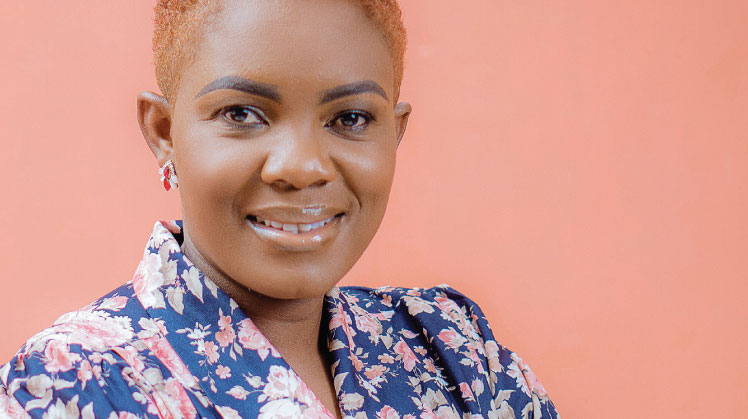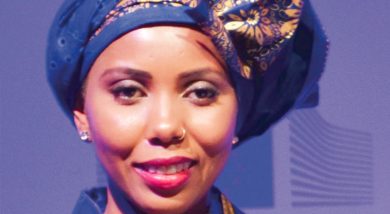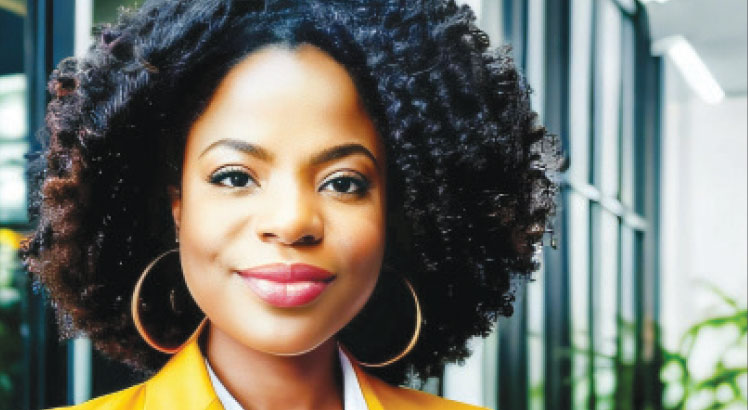Carol matale: founded the centre for women and girls empowerment
Carol Chidothe Matale, 32, followed her passion to serve and improve the lives of women and girls.
She founded the Centre for Women and Girls Empowerment (Cewoge)—a non-profit organisation in 2016.
Her passion ignited by the story of a girl aged 15 years at that time who came to her home in 2013 looking for piece work (ganyu).
“She looked depressed and hopeless as she narrated her story that she was once married, but had been sexually abused and abandoned by her then husband who also infected her with HIV. My sister and I did not offer her the piece work she wanted because she was too young, but instead, we asked her if she could go back to school and she agreed. So, we promised to support her education,” Carol explains.
The youthful founder states that the girl’s story made her realise the needs and challenges that many women and girls are going through. And she responded to the passion that was burning within her.
Since 2016, Cewoge has implemented a number of projects such as enhancing girls’ education which was implemented in community day secondary schools in Blantyre.
Through this project which ran for three years, the organisation mentored girls in career and leadership; sexual and reproductive health and rights; as well as science and innovation.

In 2019, Cewoge—currently with five full-time employees and 17 part time volunteers—implemented a women’s economic empowerment project in Mpemba, training 20 single mothers in tailoring and patchwork.
Carol explains: “We have also been part of a number of campaigns which included the Dolo Amavota Campaign whose aim was to motivate young people to vote during the 2019 Presidential and Parliamentary elections.
“The other one was the Covid-19 Public Awareness Campaign where we took part in raising awareness about the disease. Currently, we are implementing a five-year Cervical Cancer Screening Awareness Project that begun in May 2022. We are raising awareness on the causes, transmission, screening, prevention and treatment of cervical cancer.”
A graduate of the Malawi University of Business and Applied Sciences (Mubas), the young woman is glad that Cewoge’s work has received positive responses and support over the past six years.
“Through all the projects and campaigns we have done, we have had several local and international sponsorships. We normally work with volunteers during projects and campaigns and every time we open a window for volunteering opportunities, a lot of young people are always interested to be part of the team.
“In addition, we have been implementing a Cervical Cancer Screening Awareness Project where we encourage young women to go for screening and the feedback has been overwhelming,” she says.
Speaking in a telephone interview, Machinjiri-based Stella Manjomo, one of the women who were sensitised to the issues of cervical cancer, was grateful to have received the knowledge and she went straight for screening following the awareness created.
“We learnt about how cervical cancer is caused and how it can be prevented. Following the training, I went on to get screened from a health centre at Luwanda. I have also in turn resorted to sharing with others the messages of cervical cancer and the importance of screening, considering the rise in the numbers of cancer-related deaths since cancer is treatable if detected early,” she says.
Nonetheless, there are a couple of challenges that Cewoge—whose areas of focus are girls’ education, women’s economic empowerment, sexual reproductive health as well as environment and climate change adaptation—is facing.
According to Carol, the biggest of these challenges is getting support from the private sector.
“Most private institutions prefer to sponsor music events, football activities leaving out initiatives that are impacting communities.
“As Cewoge, we do not always receive huge funding from outside for projects and activities. We normally source from our stakeholders. So it is my plea that the private sector should consider working with grassroots organisations as well to enhance impact,” she says.
Carol adds that this year, they are planning to scale up their work to the Central Region where their team in Lilongwe will be managing most of the projects.
“I hope five years from now, we will have reached out to many communities,” she says.
Carol is also encouraging women who are working on various initiatives to keep pushing forward and to never give up.
The 32-year-old mother of three-year-old Marvel Matale, pursued her tertiary education at the University of Malawi, Polytechnic now Mubas where she studied Bachelor of Applied Sciences in Management Information Systems.
Last born in a family of six children, the founder also holds a professional certificate in marketing obtained from the Management Development Centre at Mubas.
She was born and raised in Blantyre by her parents, the late Alex and Mary Chidothe and is now married to Edward Matale with whom they will celebrate their fifth anniversary this year.
Growing up, they lived in Kanjedza Township from where she went to Limbe Primary School and was later selected to St Mary’s Secondary School in Zomba.
Carol feels she was raised to be a leader, as she remembers that at 10 years old, she would organise her fellow children in the neighborhood for Sunday School and home choir.
“Every Sunday morning, parents and guardians would send their children over to my home and I would lead them all to church. All the parents at that time believed in me and they allowed their children to be led by me. And throughout my secondary and tertiary education, I have also held various leadership positions,” she says.
As far as her advice to younger girls across the country goes, Carol says: “Dream big and work hard towards your vision. Remember to be patient enough when things get tough and also remember that all things are possible if you believe.”



